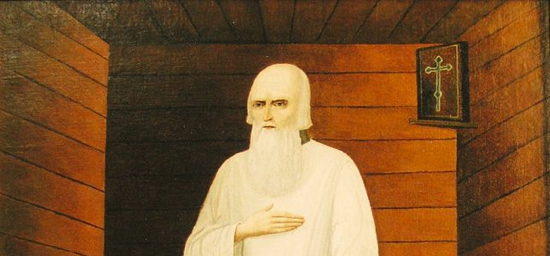The Mystery of Czar Alexander

Is it really true that Czar Alexander I staged his own death and assumed another identity? Quite a few people believed that, reader Alice, and not just conspiracy nuts. Most Russians of the time believed he was still alive after he was reported dead. Even members of the late Czar’s own family seemed to believe it. But why would they? Possibly because Alexander talked about vanishing and becoming a hermit almost incessantly. He certainly made no secret of his distaste for the trappings of wealth and power and his deep guilt over the death of his father, Czar Paul I, was well known.
Alexander had, shall we say, a troubled relationshhip with his family. His grandmother, Catherine the Great, hated his father (her own son) and made no secret of it. She considered Paul I to be an unstable tyrant-in-waiting. When Alexander was born Catherine immediately took charge of him (Alexander’s mother was indifferent to him) and educated him in the classical liberal virtues. Despite Paul’s attempts to literally beat some toughness into the boy, Alexander grew up sullen and sensitive. When Catherine died in 1796, Paul ascended the throne. His subjects quickly came to see that Catherine’s instincts were entirely correct and by 1801 a coup plot was hatched.
Alexander was predictably ambivalent about the plot, but ultimately gave his assent on the condition that his father be left unharmed. One night in early 1801 a mixed band of angry nobles and military men burst into Paul’s chambers in St. Michael’s Castle with the 23-year-old Alexander in tow. They tried to force Paul to sign his own abdication decree and when he refused they stabbed and strangled him, then cast his body to the floor where they trampled all over it. Alexander spent the rest of his life wondering exactly which part of “leave him unharmed” they failed to understand.
He spent the next 25 years feeling guilty. He looked to friends, family, priests and mystics for relief but found none. And even though he was broadly popular for his attempts at liberal reforms (the end of serfdom, free press and free institutions) he openly longed to be liberated from the burdens of leadership. Which is why, when the vigorous 48-year-old Czar, after a year filled with personal disasters including the death of his 18-year-old daughter, was suddenly reported dead from typhus more than a few people looked at each other and said: so, he finally did it. Was the disfigured corpse placed in a coffin in Taganrog in December of 1825 really his? Many, many Russians doubted it. Indeed they believed their melancholy Czar had boarded a ship and sailed to parts unknown.
Then, 11 years later in the Siberian city of Krasnoufimsk, a strange man by the name of Feodor Kuzmich appeared. He was described as a man of noble bearing and considerable education, but for some reason this elegant stranger refused to give up any information about himself to local authorities. So they beat him up and sent him off to work in a distillery where he remained for five years. After a 15-year period of wandering, Kuzmich settled in the city of Krasnaya Re chia where the locals honored him as a starets, a holy and enlightened elder, and began to seek his counsel and blessings. They also wondered about him. How did Kuzmich come to learn so many languages? Where did his intimate knowledge of St. Petersburg and the royal court come from? Why did he seem to have so many important visitors including — some say — his brother and heir Czar Nicholas I?
No one knew, but many speculated. Today there is more than a little evidence, though granted it’s virtually all anecdotal, that Kuzmich was indeed Czar Alexander I. Of course only a DNA test of the Alexnder’s (or Kuzmich’s) remains would ever prove it definitively. Thanks for getting me going on a Monday morning, Alice!
I love these side-histories you get into Joe. Wonderful stuff!
Thanks very much, Gerik! I love what I do!
– Joe
Thanks – very interesting stuff!
Fascinating indeed.
I love Russian history – heck I love history. It kills me that so many of my students don’t like it. After all what is history but the story of people, and people are endlessly fascinating.
Ain’t it the truth? I thought I hated history until I got out of school and actually started reading it!
Nice to hear from you as always, Ellen!
– Joe